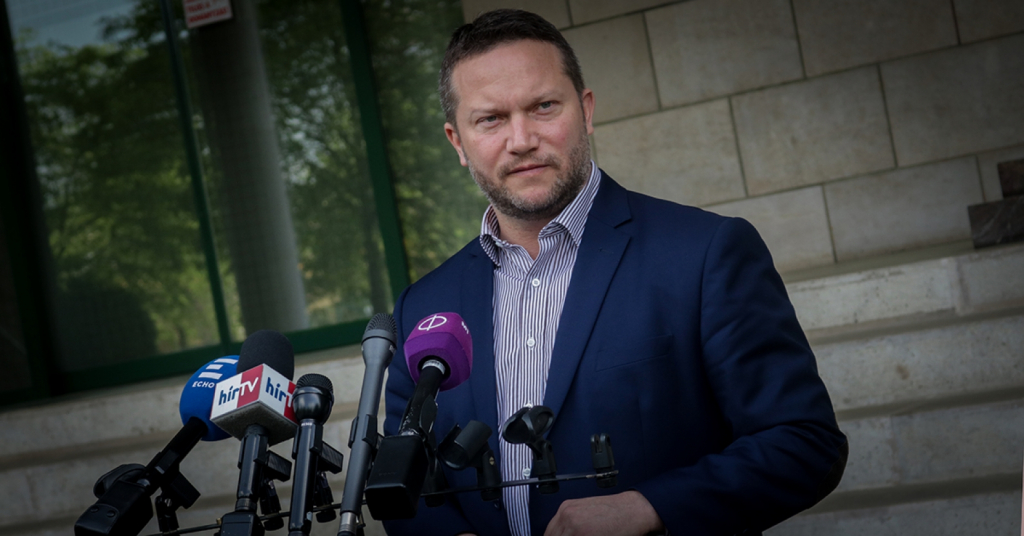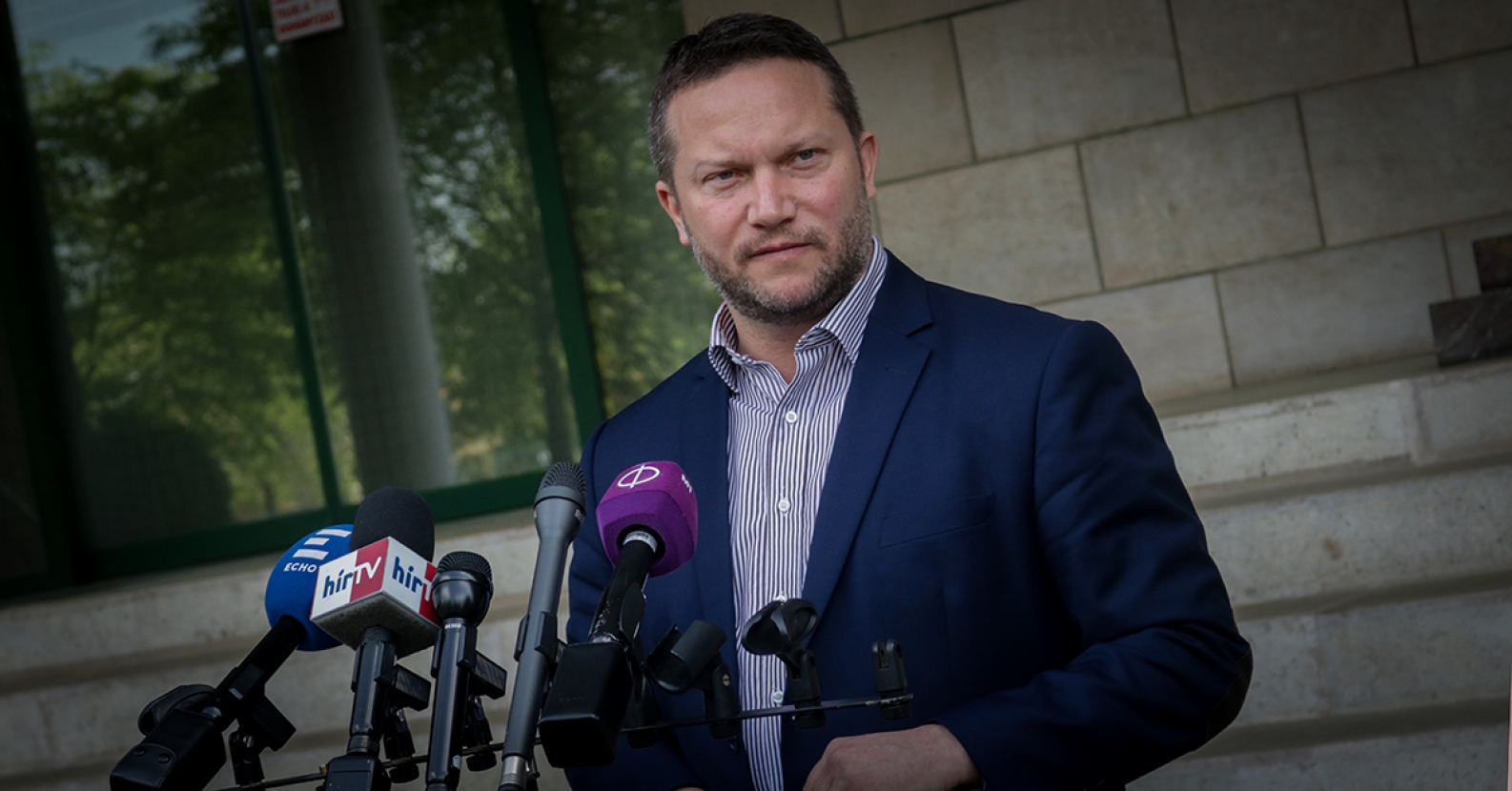Published: 9.6.2022
 It is increasingly difficult and costly to „protect families”, moreover the government wants to strengthen the defence forces, so it has recently set up a so-called „Overheads Protection Fund” and a „Defence Fund” to finance these tasks. The Prime Minister has announced a tax on so-called market extra profits and expects billions in contributions from banks, insurance companies, large retail chains, energy and trading companies, telecoms and airlines. As a social democrat, I naturally support the principle that the wealthy should take greater responsibility and do more to finance social measures and combat the crisis.
It is increasingly difficult and costly to „protect families”, moreover the government wants to strengthen the defence forces, so it has recently set up a so-called „Overheads Protection Fund” and a „Defence Fund” to finance these tasks. The Prime Minister has announced a tax on so-called market extra profits and expects billions in contributions from banks, insurance companies, large retail chains, energy and trading companies, telecoms and airlines. As a social democrat, I naturally support the principle that the wealthy should take greater responsibility and do more to finance social measures and combat the crisis.
That would all be fine, but responsible and credible decision-making certainly does not stop here. Indeed, it raises serious questions (although we all know the answers already without giving it too much thought) as to why the government is only unilaterally involving targeted sectorial players in this major withdrawal of resources and why sectorial interests that have made considerable fortunes in the past are being spectacularly left out, without being asked to take their share of the joint responsibility. Just think of the casinos, for example, which, unlike retailers, have not even had to hook up their online cash registers to the tax authorities’ system, but despite the crisis still generate profits of more than ten billion a year for their owners, such as the Minister of Defence, Kristóf Szalay-Bobrovniczky, and István Garancsi, who also has close ties with the government. And, if that were not enough, they have also received more than two hundred million in state wage subsidies in the past, precisely because of the crisis. In other words, when there is a crisis, the taxpayer bails them out, and when they would have to pay something back, the government forgets to involve them. But the same is true of almost all the oligarchic interests that thrive on the favours and help of the Fidesz government: in crises they mostly just cash in and show no solidarity whatsoever. It is equally important to look at what the government does with the money it collects, and how it does it. It is not enough to raise crisis funds in a fair way by taxing all those who are able to pay; it is also necessary to spend these funds fairly, transparently and in accordance with the real objectives. We, in fact, have very bad experiences in this regard. It is important to recall that two years ago, the Fidesz government set up a so-called Economy Protection Fund in response to the coronavirus epidemic, from which more than four thousand billion forints (!) were disbursed, yet only a quarter of this amount was spent on direct economic protection aid. In other words, more than three thousand billion forints (!) from this fund were spent on things that actually had very little to do with combatting covid, the eradication of the epidemic crisis, helping the poor and workers facing difficulties. It is hard to forget that billions of this budget for economy protection were spent on sports facilities, other billions on a church renovation programme, the reconstruction of the Buda Castle district (which happens to give home to the Prime Minister’s office) and stadium building, or that over a hundred billion forints of it went to „public foundations” full of government officials, and tens of billions to intellectual workshops not so secretly linked to Fidesz that openly serve government policy.
The best thing, however, is that from the Economy Protection Fund recapitalized in connection with the coronavirus, the hunting expo, which was of great importance to Fidesz-KDNP, received several billions of forints and contrary to all the previous propaganda, we know that it brought in only a fraction of the state forints spent on it. This is not crisis management, this is squandering money. Among the government’s crisis management measures, the creation of protection funds can actually be supported, since there is a real need for centralized solidarity revenues and their focused, targeted use. However, Fidesz is still no different in this respect than it was before: it does not dig into its own pockets, only into others’, and the money distributed as aid is mostly not for others: it effectively goes into its own pockets. The lowest point of this governmental practice was reached when certain governmental interests profited billions from the purchase of equipment combatting the deadly covid epidemic. If Fidesz wants to create real physical and financial security in this situation, it must also act with minimal decency and maximum transparency with regard to the newly created funds. And in the event that they want to achieve effective results in crisis management and not just symptomatic treatments, they will consider and incorporate into government decisions the concrete and well-developed proposals of MSZP’s ‘Security of Livelihood Package,’ as that gives a real chance for a crisis-proof everyday life.
After the Hungarian Prime Minister’s landmark 2014 speech in Tusványos, which proclaimed the illiberal state, I vowed that as a European MEP I would send an open letter every week to warn the public of the crimes of the system that has been established. I am ringing the bells of alarm for the 354th time and will continue to do so for as long as it is necessary. Because we must give a chance for revival and for a shared homeland.
dr. István Ujhelyi
Member of the European Parliament
5 June, 2022.
